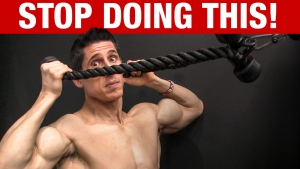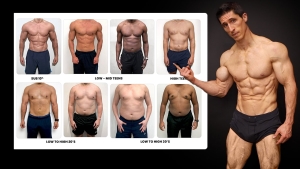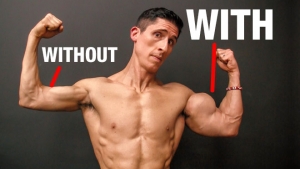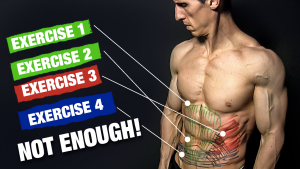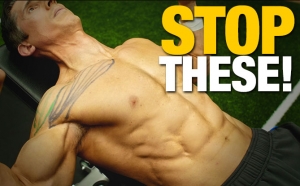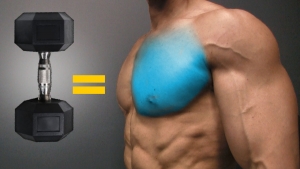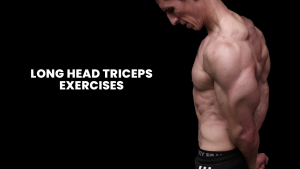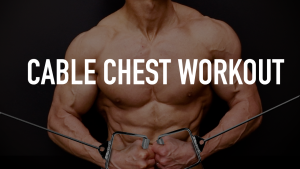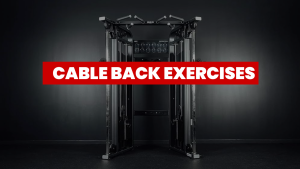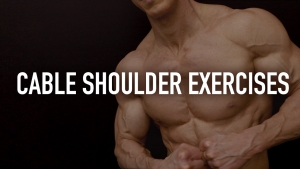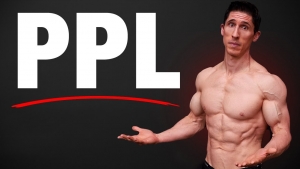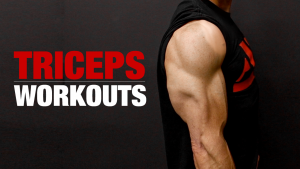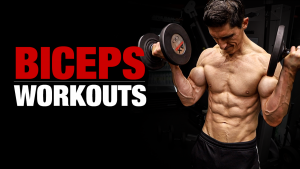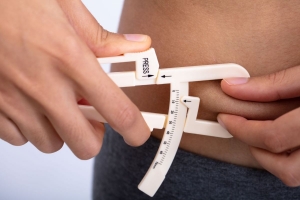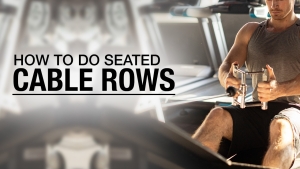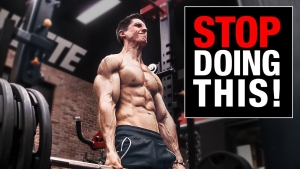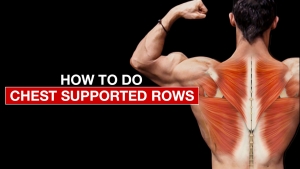If you are looking to fix low back pain or even prevent it from occurring in the first place, you are definitely going to want to watch this video. I’m going to show you 5 red flags that will help you to identify what is either causing the pain in your lower back or could cause it in the future.
RED FLAG #1: TIGHT HIP FLEXORS
The first red flag for identifying and fixing pain in the low back is tight hip flexors. Because of their attachment to the lumbar paraspinal muscles, the hip flexors will pull on those muscles, which will then manifest itself as low back pain. To check the tightness of the hip flexors, we are going to use a modified version of the Thomas Test which will require nothing but a bench and our own body. Addressing the tightness in the hip flexors will help to alleviate any back pain you currently have or may be at risk of having in the future.
RED FLAG #2: WEAK GLUTES
Next, we need to look at the glutes! Having weak glutes will cause the muscles in the lower back to do extra work, leading to overuse and fatigue in those muscles which will lead to low back pain. A good way to test our glutes is to look in the mirror – a flat butt means a lack of muscular development. Another test for our glute strength is to perform a hyper-hold for at least 2 minutes. If you fail to hold that position for 2 minutes, you’re likely suffering from a glute weakness. This means you need to start adding glute strengthening movements into your training utilizing exercises such as barbell hip thrusts, rdl’s, and sprinter lunges. Strong glutes will directly help to preventing low back pain.
RED FLAG #3: INABILITY TO STAND WITHOUT PAIN
The third red flag for low back pain is the inability to stand for more than 20 minutes without pain, constant shifting, and no anterior pelvic tilt. If you notice that this keeps happening, that means that the muscles in the low back do not have the endurance to hold yourself up for extended periods of time. To fix this, we utilize the hyper-hold. If you find yourself falling into anterior pelvic tilt while standing, you are only going to make the low back pain worse. An anterior tilt will cause the hip flexors to not only pull on the muscles in the low back, but will also cause those lumbar paraspinal muscles to do more work to hold your body up.
RED FLAG #4: FLAT FEET
The next red flag for low back pain is having flat feet. The pronation of the foot (collapsing of the arch) will cause a valgus of the knee which, going up the kinetic chain, leads to internal rotation of the hip and altered glute fibre-firing patterns, which then affects the muscles in the low back and causes pain. People with flat feet will notice they often stand with their feet crossed as it will put more pressure on the outside of the foot, trying to alleviate some of that pain.
If you have flat feet, make use of orthotic inserts as they will help support the arch of your foot. By removing that over-pronation, you will notice that the pain that goes up the kinetic chain starts to lessen, including low back pain.
RED FLAG #5: SITTING POSTURE
Last, you need to take note of your sitting posture. Sitting slumped in a chair with a posterior pelvic tilt is a good indicator that you’ll be experiencing low back pain in the near future because it is indicative of the fact that the muscles in the low back are weak. Let’s face it; sitting upright takes work and requires low back strength to hold over time. Now, we also need to look up the kinetic chain at our shoulders and thoracic spine as well. If you have rounded shoulders as well as rounding of the thoracic spine, the slumping posture will pull the low back into posterior tilt as well, again showing itself as low back pain.
For a complete training program that overlooks none of these issues, check out our ATHLEAN-X Training System by heading to https://athleanx.com using the link below. All of our programs utilize science in the exercise selection to make sure that no dysfunction goes unchecked.
For more videos on dealing with everyday pain, posture and dysfunction such as how to fix rounded shoulders or training with medial elbow pain, be sure to subscribe to our channel here on youtube at the link below and don’t forget to turn on your notifications so you never miss a new video when it’s published.
How to Fix Plantar Fasciitis – https://www.youtube.com/watch?v=72p58…
How to Fix Rounded Shoulders – https://www.youtube.com/watch?v=oLwTC…
How to Fix Anterior Pelvic Tilt – https://www.youtube.com/watch?v=K-CrE…
Build Muscle in 90 Days – Core 4
Subscribe to this channel here – http://bit.ly/2b0coMW

Jeff Cavaliere M.S.P.T, CSCS
Jeff Cavaliere is a Physical Therapist, Strength Coach and creator of the ATHLEAN-X Training Programs and ATHLEAN-Rx Supplements. He has a Masters in Physical Therapy (MSPT) and has worked as Head Physical Therapist for the New York Mets, as well as training many elite professional athletes in Major League Baseball, NFL, MMA and professional wrestling. His programs produce “next level” achievements in muscle size, strength and performance for professional athletes and anyone looking to build a muscular athletic physique.
